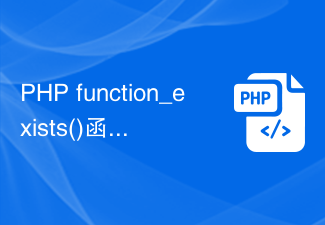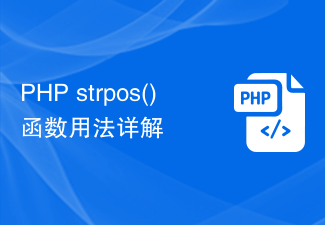This article mainly introduces the issue of VUE array update. The article introduces how vue monitors data changes. Friends who need it can refer to it. I hope it can help everyone.
1. Data method classification:
(1) Original array change
push
pop
unshift
shift
reverse
sort
splice
(2) The original array remains unchanged, generate a new array
slice
concat
filter
For methods to change the original array , the view can be updated directly.
For methods where the original array remains unchanged, you can replace the original array with a new array to change the view.
Sample code:
nbsp;html> <meta> <title>vue示例</title> <p> </p>
- 书名:{{book.name}}
- 作者:{{book.author}}
Note: The following will not trigger an update of the view.
(1) Set items directly through index.
(2) Modify the array length, app.books.length=1.
If you don’t want to change the original array, you can use calculated properties to filter the array, such as:
nbsp;html> <meta> <title>vue示例</title> <p> </p>
- 书名:{{book.name}}
- 作者:{{book.author}}
So how does vue monitor data changes?
1) How to track changes
Each component instance has a corresponding watcher instance object, which will record the properties as dependencies during the component rendering process. Later, when the setter of the dependency is When called, the watcher is notified to recalculate, causing its associated components to be updated.
2) Change detection problem
Due to the limitations of modern JavaScript (and the deprecation of Object.observe), Vue cannot detect the addition or deletion of object properties. Since Vue performs the getter/setter conversion process on the property when initializing the instance, the property must exist on the data object in order for Vue to convert it so that it is responsive. For example:
var vm = new Vue({
data:{
a:1
}
})
// `vm.a` 是响应的
vm.b = 2
// `vm.b` 是非响应的
Vue does not allow dynamically adding new root-level reactive properties to already created instances. However, it can use the Vue.set(object, key, value) method to add response properties to nested objects:
Vue.set(vm.someObject, 'b', 2)
You can also use the vm.$set instance method, which is also the global Vue.set method alias,
The above is the detailed content of Detailed explanation of vue array update method. For more information, please follow other related articles on the PHP Chinese website!
 C++中的众数函数详解Nov 18, 2023 pm 03:08 PM
C++中的众数函数详解Nov 18, 2023 pm 03:08 PMC++中的众数函数详解在统计学中,众数指的是一组数据中出现次数最多的数值。在C++语言中,我们可以通过编写一个众数函数来找到任意一组数据中的众数。众数函数的实现可以采用多种不同的方法,下面将详细介绍其中两种常用的方法。第一种方法是使用哈希表来统计每个数字出现的次数。首先,我们需要定义一个哈希表,将每个数字作为键,出现次数作为值。然后,对于给定的数据集,我们遍
 C++中的取余函数详解Nov 18, 2023 pm 02:41 PM
C++中的取余函数详解Nov 18, 2023 pm 02:41 PMC++中的取余函数详解在C++中,取余运算符(%)用于计算两个数相除的余数。它是一种二元运算符,其操作数可以是任何整数类型(包括char、short、int、long等),也可以是浮点数类型(如float、double)。取余运算符返回的结果与被除数的符号相同。例如,对于整数的取余运算,我们可以使用以下代码来实现:inta=10;intb=3;
 Vue.nextTick函数用法详解及在异步更新中的应用Jul 26, 2023 am 08:57 AM
Vue.nextTick函数用法详解及在异步更新中的应用Jul 26, 2023 am 08:57 AMVue.nextTick函数用法详解及在异步更新中的应用在Vue开发中,经常会遇到需要进行异步更新数据的情况,比如在修改DOM后需要立即更新数据或者在数据更新后需要立即进行相关操作。而Vue提供的.nextTick函数就是为了解决这类问题而出现的。本文就会详细介绍Vue.nextTick函数的用法,并结合代码示例来说明它在异步更新中的应用。一、Vue.nex
 Django框架中的缓存机制详解Jun 18, 2023 pm 01:14 PM
Django框架中的缓存机制详解Jun 18, 2023 pm 01:14 PM在Web应用程序中,缓存通常是用来优化性能的重要手段。Django作为一款著名的Web框架,自然也提供了完善的缓存机制来帮助开发者进一步提高应用程序的性能。本文将对Django框架中的缓存机制进行详解,包括缓存的使用场景、建议的缓存策略、缓存的实现方式和使用方法等方面。希望对Django开发者或对缓存机制感兴趣的读者有所帮助。一、缓存的使用场景缓存的使用场景
 php-fpm调优方法详解Jul 08, 2023 pm 04:31 PM
php-fpm调优方法详解Jul 08, 2023 pm 04:31 PMPHP-FPM是一种常用的PHP进程管理器,用于提供更好的PHP性能和稳定性。然而,在高负载环境下,PHP-FPM的默认配置可能无法满足需求,因此我们需要对其进行调优。本文将详细介绍PHP-FPM的调优方法,并给出一些代码示例。一、增加进程数默认情况下,PHP-FPM只启动少量的进程来处理请求。在高负载环境下,我们可以通过增加进程数来提高PHP-FPM的并发
 PHP function_exists()函数用法详解Jun 27, 2023 am 10:32 AM
PHP function_exists()函数用法详解Jun 27, 2023 am 10:32 AM在PHP开发中,有时我们需要判断某个函数是否可用,这时我们便可以使用function_exists()函数。本文将详细介绍function_exists()函数的用法。一、什么是function_exists()函数?function_exists()函数是PHP自带的一个内置函数,用于判断某个函数是否被定义。该函数返回一个布尔值,如果函数存在返回True,
 Gin框架的模板渲染功能详解Jun 22, 2023 pm 10:37 PM
Gin框架的模板渲染功能详解Jun 22, 2023 pm 10:37 PMGin框架是目前非常流行的Go语言Web框架之一。作为一个轻量级的框架,Gin提供了丰富的功能和灵活的架构,使得它在Web开发领域中备受欢迎。其中一个特别重要的功能是模板渲染。在本文中,我们将介绍Gin框架的模板渲染功能,并深入了解它的实现原理。一、Gin框架的模板渲染功能Gin框架使用了多种模板渲染引擎来构建Web应用程序。目前,它支持以下几种模板引擎:
 PHP strpos()函数用法详解Jun 27, 2023 am 10:43 AM
PHP strpos()函数用法详解Jun 27, 2023 am 10:43 AMPHPstrpos()函数用法详解在PHP编程中,字符串处理是非常重要的一部分。PHP通过提供一些内置函数来实现字符串处理。其中,strpos()函数就是PHP中最常用的一个字符串函数之一。该函数的目的是在一个指定的字符串中搜索另一个指定字符串的位置,如果包含则返回这个位置,否则返回false。本文将通过详细分析PHPstrpos()函数的用法,助你更好


Hot AI Tools

Undresser.AI Undress
AI-powered app for creating realistic nude photos

AI Clothes Remover
Online AI tool for removing clothes from photos.

Undress AI Tool
Undress images for free

Clothoff.io
AI clothes remover

AI Hentai Generator
Generate AI Hentai for free.

Hot Article

Hot Tools

EditPlus Chinese cracked version
Small size, syntax highlighting, does not support code prompt function

Dreamweaver CS6
Visual web development tools

WebStorm Mac version
Useful JavaScript development tools

SublimeText3 Mac version
God-level code editing software (SublimeText3)

DVWA
Damn Vulnerable Web App (DVWA) is a PHP/MySQL web application that is very vulnerable. Its main goals are to be an aid for security professionals to test their skills and tools in a legal environment, to help web developers better understand the process of securing web applications, and to help teachers/students teach/learn in a classroom environment Web application security. The goal of DVWA is to practice some of the most common web vulnerabilities through a simple and straightforward interface, with varying degrees of difficulty. Please note that this software






